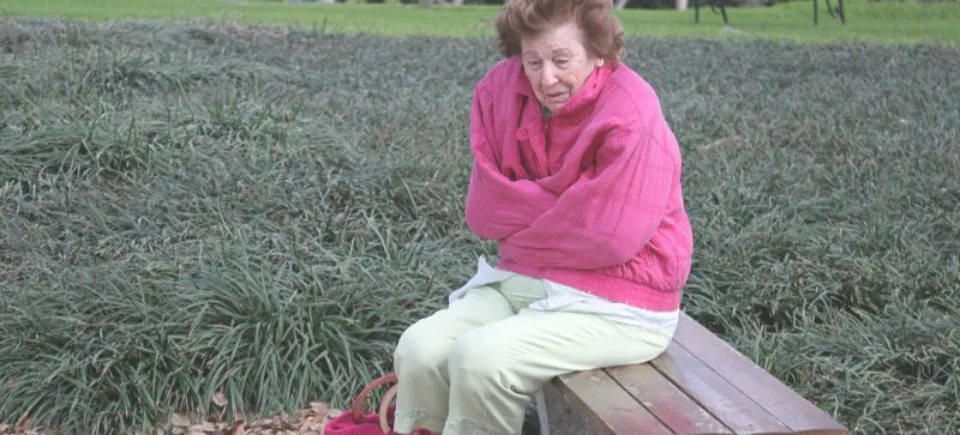Have you ever questioned why a loved one with dementia is always cold? One typical symptom of dementia, particularly as the disease worsens, is dementia feeling cold all the time.
Despite the fact that it may not actually be cold, those who feel cold just can’t seem to get rid of the chill. We’ll discuss why being perpetually cold is a common sign of dementia and offer some suggestions for staying warm.
Related: 12 Methods to Cope With a Parent With Dementia – Elder VIP
Why Are Patients With Dementia Feeling Cold All the Time?
A brain function known as autoregulation regulates the body’s temperature. This controls the body’s internal blood flow as well as blood flow to the extremities.
Chemical and physical changes are brought on by dementia as it shows up in the brain. As a result, the body’s autoregulation system is affected and no longer functions properly.
Dementia impairs the autoregulation system, which causes the brain to start defending the body’s core. The vital organs are all situated there.

Blood vessels in the extremities, including the hands, feet, knees, and elbows, narrow to reduce blood flow.
These regions become colder in order to maintain the warm blood flow within the body’s core.
In addition, a lot of elderly people go through other physical changes that have an impact on their body temperature.
Are There Risks?
The constant feeling of being cold is unpleasant in and of itself, but it can also lead to other problems.
Increasing Frailty
Our bodies are prone to tensing up when we feel cold. It’s common for people to want to round their shoulders in an effort to keep their core warm.
When done repeatedly throughout the day, this can affect posture, especially in the short term.
On a person’s ability to sit, stand, and move around, these changes may have long-lasting effects.
For elderly people needing dementia care, poor posture can affect balance and stability and increase the risk of falling.
Reduced Movement
Dementia patients may feel less motivated to engage in activities like eating or drinking if it feels impossible to warm up.
The ability to move their hands and feet may also be more difficult for them.
As a result, these brain and movement pathways aren’t being used and strengthened as they should be, which can lead to further deterioration and ability loss.
How Do You Keep a Dementia Patient Warm?
Although keeping a dementia patient warm can be difficult, it is crucial for their comfort and well-being. Several different approaches could be effective.
First, always make sure to dress them warmly when outdoors, and dress in layers – this is especially important on colder days. Along with a warm coat, hat, and shoes, don’t forget to pack scarves, gloves, and hats.
Pay close attention to their feet; they should always be kept warm and dry. Be sure to adjust the clothing to their level of comfort.
Second, it may help to provide the individual with a warm bed. This might entail using extra blankets or comforters during particularly chilly months, as well as placing an electric blanket or heated mattress topper on the bed.

Additionally, using a humidifier in the room may help to keep the air moist and more comfortable.
Third, it is important to ensure the individual remains hydrated. To make sure they are receiving the right nutrients, offer warm beverages like tea, coffee, or hot chocolate, and include fruits and vegetables in your meals.
Likewise, providing snacks such as oatmeal or hot cereal may be helpful in keeping the individual warm.
Finally, provide the individual with plenty of activity – physical activity helps to increase their body heat and energy. If they are unable to be very active, make sure to give them warm places to rest or, if it’s possible, encourage them to sprawl out on a mattress or rug.
An individual with dementia ought to be able to maintain their warmth and enjoy a cozy environment by using these methods. Quick ways:
- Holding a warm cup of tea
- Applying a hot water bottle or warm pillow
- Warming a towel in the tumble dryer to cover the feet
- Put on a pair of fluffy socks or gloves
In addition to warming the extremities, it’s a good idea to try to keep your core temperature steady. Maintain core temperature:
- Wearing layers of clothing, such as a vest underneath a top and jumper
- Drinking a hot drink
- Regular movement such as standing up and sitting down or doing some chair exercises to practice mobility and strength too
- Especially during the winter, make sure that homes are adequately heated.
Does Cold Weather Make Dementia Worse?
According to the majority of studies, cold temperatures have only a minor impact on people who already have dementia, but they have no discernible impact on dementia symptoms. Researchers found that participants experienced a cognitive decline in colder temperatures, though the amount was insignificant in comparison to typical age-related decline. This was revealed in a review of studies that examined the impact of temperature on age-related cognitive decline.
One possible explanation for why cold weather does not appear to affect dementia symptoms is that most people with dementia are able to dress appropriately for cold weather, so they are not overly affected by the cold.
Additionally, by adding insulation, space heaters, or warm clothing, people with dementia can modify their surroundings to accommodate the cold.
Unfortunately, those who have dementia may be more vulnerable to illnesses like hypothermia or frostbite, so it’s crucial that family members monitor the person’s health as the weather gets colder.
Conclusion
A normal body temperature can be challenging for dementia patients to maintain. such as modifications to metabolism, circulation, and general health. Additionally, people with dementia might not be aware of their own body temperature and thus be unable to adjust their environment in an effort to stay warm.
There are some things you can do to help a dementia patient get warmer if they are constantly feeling cold and you are their caregiver. Concentrate your efforts on warming the extremities, such as the hands and feet, as their body is already working hard to maintain their core temperature.



